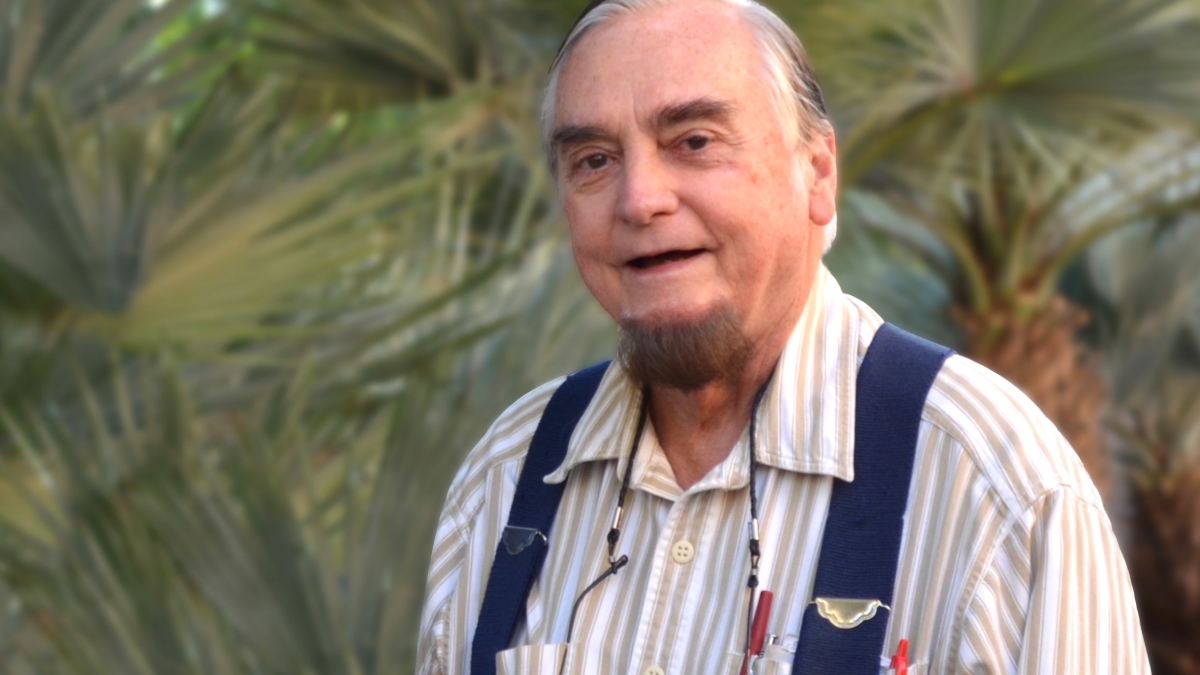Martin J. Fouquette, accomplished herpetologist, dies at 84

Martin J. (“Jack”) Fouquette, Jr., a devoted teacher and accomplished scholar, who published one of the only thorough documentations of reproductive character displacement in amphibians, died Aug. 28, in Chandler, Arizona. He was 84.
An emeritus professor with ASU’s School of Life Sciences, Fouquette was born in Philadelphia in 1930, but eventually moved to Texas. After attending public school in Kerrville, he made the short move to the University of Texas, Austin, where he originally studied chemistry to make his parents happy.
However, he had developed an interest in snakes during high school that continued to nag at him. That interest, and exposure to the late UT professor Frank Blair’s lab, pushed Fouquette to change his major to zoology.
After earning his bachelor’s degree, he pursued a master’s with Blair as his mentor. Fouquette started graduate school studying garter snakes, but Blair advised him to acquire newly developed recording equipment and switch his research focus to anuran frogs in Central America for his doctorate.
Because of this, Fouquette joined the U.S. Air Force and requested an assignment in Panama. He served as a seaplane navigator in the air rescue branch, traveling to the Canal Zone in his off time to record the mating calls of frogs. Following his four years in the air force, Fouquette returned to UT and used his data to finish his doctorate in 1959.
Fouquette was an interim faculty member at the University of Florida and an assistant professor at the University of Louisiana, Lafayette. Eventually, he took a position at ASU where he established a bioacoustics research program.
The 1970s was a busy decade for Fouquette in terms of his own research and the students he mentored. One of his greatest career moments came in 1975 when Fouquette published what was one of the only thorough documentations of reproductive character displacement, a rare phenomenon among amphibians. In addition, he signed off on many dissertations and theses for students who went on to become successful herpetologists.
“Jack was one to let students have a free reign, and he influenced their growth and development with nuance and subtlety,” said Brian Sullivan, a professor with ASU’s School of Mathematical and Natural Sciences and former student of Fouquette’s. “Jack had a special characteristic that set him apart from others, one that allowed students and some faculty members at ASU to look with envy at his relationship with his productive students.”
Fouquette remained involved in the field of herpetology, even through this past summer. He often attended informal meetings in the Phoenix area, delighting his peers with stories and photos of his recent trips.
“Jack was simply one of the nicest people I ever encountered,” said Laurie Vitt, a widely renowned herpetologist at the University of Oklahoma and one of Fouquette’s most successful students. “He wasn’t pushy, he wasn’t arrogant, and he seemed to have a level of integrity that I now know is much rarer in academia than we would like to think.”
Fouquette is survived by his wife, Elena, his three children, David Fouquette, Hyla Mendez and Mari Firago, as well as two grandchildren.
A memorial service was held Sept. 5 to celebrate Fouquette’s life.